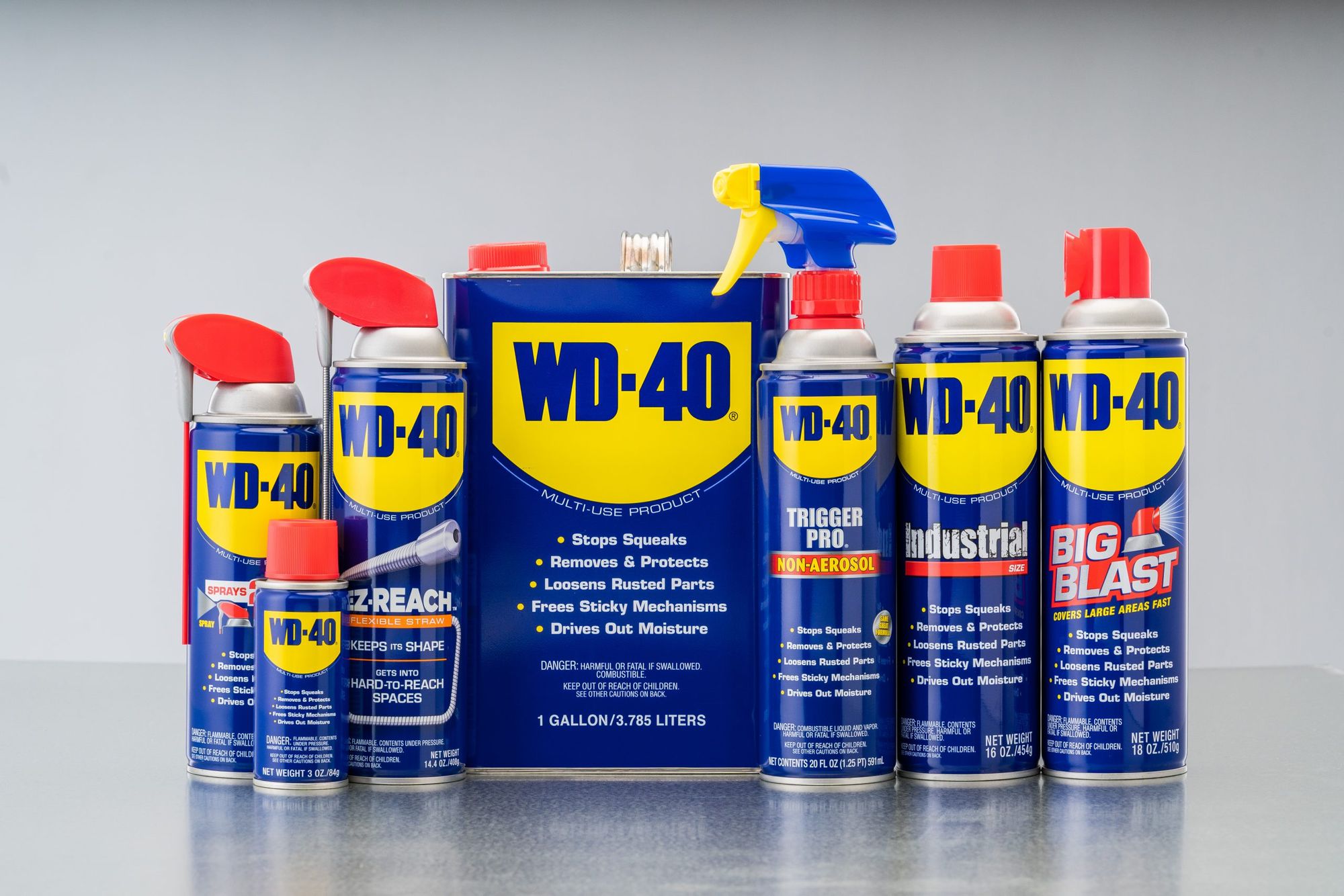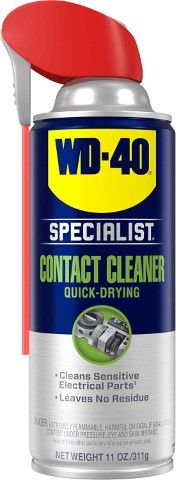WD-40, the magic elixir of DIYers
Is WD-40 the magic elixir of DIYers? I think so, and give some usage examples and reasons why you need to stock up today.

WD-40, a short history
If you ask me, there's nothing quite like an entrepreneurial success story, and WD-40 certainly fills the bill. With that in mind, let's delve into the history of this versatile and indispensable product.
1953 - it was a very fine year
In 1953, three people formed the Rocket Chemical Company with the mission of developing the best rust and corrosion-fighting product available anywhere. 1953 was the heyday of all things aerospace, and Rocket Chemical was smack dab in the middle of it in San Diego. A lot of aerospace companies put down roots in Southern California during WWII, and as the cold war and space race heated up, these companies flourished. And Rocket Chemical set its sights on leveraging this market.
What's in a name?
The product's name suggests something technical, at least to me. But, what, if anything, does it stand for? Well, I am tickled that you asked. Here's how the product name breaks down:
WD = Water Displacement
40 = the number of formulas tried before finding the Goldilocks one.

What does water displacement mean, and how does it help fight rust and corrosion? Let's tackle the second question first. When water and bare metal come into contact with each other, rust and corrosion occur. Even coated or painted metals are susceptible to water's insidious attacks.
So, to prevent rust and corrosion, you need to displace existing water and keep it away, hence water displacement. Dry metals are happy metals and WD-40 makes metals very happy indeed. You might even go so far as to say, jovial.
Fun science fact
Believe it or not, the United States Geological Survey (USGS) classifies water as the universal solvent because it dissolves more materials than any other fluid. solvent on Earth. However, unlike other solvents, it may take water a few million years to do the job.
How do I use thee? Let me count the ways.
According to the company website, customers and fans have submitted over 2000 uses for WD-40. What do you think? Should I list them all here? Nah, where's the fun in that? So, I picked a few at random to demonstrate the versatility of the product. You can download a PDF of all 2000+ uses and peruse them at your leisure.
Here are a few ways I use WD-40:
- Stop squeaky hinges on anything.
- Lubricate garage door rollers and tracks without greasy buildups.
- Spray on water valve steams before using them to lubricate the seal and prevent leaks.
- Loosen stuck nuts and bolts.
- Clean away rust and protect the surface afterward.

Here are a few random uses from the WD-40 document:
- Helps clean showers.
- Unkinks gold chains.
- Protects snow shovels from salt corrosion. Ed. Note: It also helps snow slide off easier.
- Frees stuck intercom buttons at apartment buildings.
- Cleans and protects grandfather clock chains.
- Lubricates straight pins for sewing heavy fabric like denim.
- Shines car tires.
- Lubricates cargo straps on semi-trucks.
- Drives moisture from seismic cable connectors.
- Lubricates the rotor head of helicopters to stop elastomeric dampers from squeaking.
Other myths and tales of wonder
Myths and misconceptions abound for WD-40, as do some very unusual tales of it saving the day. Here are a couple of examples from the WD-40 Myths, Legends and Fun Facts page:
Myth: You can find secret formula No.: 40 just about anywhere.
False! WD-40 and Coca-Cola have one thing in common, their secret formulas are kept secret.
Myth: WD-40 contains fish oil, so lubricating your fishing hooks attracts fish.
False! The formula does not use fish oil and it's not a good idea to lubricate your fishing hooks with it for environmental protection reasons. If you need to lubricate your fishing reel, then that's a great use.
Newest addition to the lineup
One of my numerous tech emails recently featured a new WD-40 product, the Specialist Electrical Contact Cleaner Spray. According to the article, the product works wonders in cleaning up keyboards and other delicate electronics. The copy on Amazon backs up this usage, and I plan to give it a shot soon as my keyboard could use a good cleansing. No, not of the exorcism variety, getting the crude out kind.

Wrapping it up
WD-40 must, I repeat, must be an integral part of your DIY toolkit. If you don't have some already, get a can today! It doesn't go bad, and when you need to solve one of the 2000+ problems, you will want it nearby.
Get the WD-40 newsletter
If your inbox needs another email, sign up for the WD-40 Tips and Tricks periodical.
